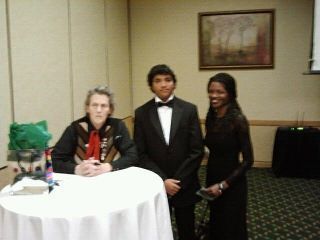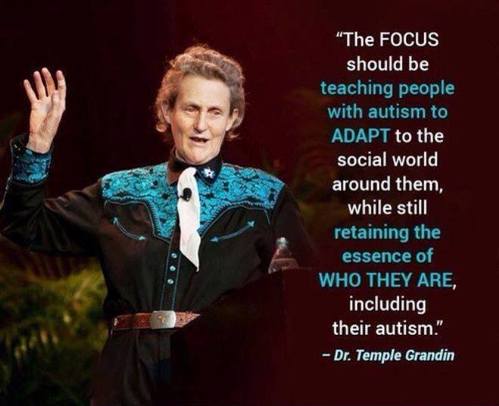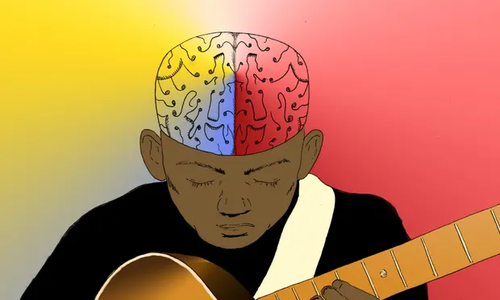Autism
Learn more about autism and how it affects your child.
Autism is a developmental disorder that generally appears in the first three years of life and affects the brain's normal development of social and communication skills.
Autism is classified as a developmental disability because it interferes with the typical rate and patterns of childhood development. The first signs of autism usually appear as before age three. There are diagnoses closely related to autism such as PDD-NOS (pervasive development disorder not otherwise specified), Asperger’s syndrome, and Rett’s syndrome that are included in the category of Autism Spectrum Disorder.
Nobody knows what causes autism. Some scientists believe there is a biological cause that affects the working of the brain, but this has not been proven. It is possible there are many factors that could interact with one another which could cause different characteristics in each individual with autism. Parents do not cause autism. No factors in a child’s experiences or in parenting styles are responsible for autism. (http://www.pals-ucfcard.org/WHAT_IS_AUTISM_.html)
Autism statistics from the U.S. Centers for Disease Control and Prevention (CDC) identify around 1 in 88 American children as on the autism spectrum–a ten-fold increase in prevalence in 40 years. Careful research shows that this increase is only partly explained by improved diagnosis and awareness. Studies also show that autism is three to four times more common among boys than girls. An estimated 1 out of 54 boys and 1 in 252 girls are diagnosed with autism in the United States.
By way of comparison, this is more children than are affected by diabetes, AIDS, cancer, cerebral palsy, cystic fibrosis, muscular dystrophy or Down syndrome, combined. ASD affects over 2 million individuals in the U.S. and tens of millions worldwide. Moreover, government autism statistics suggest that prevalence rates have increased 10 to 17 percent annually in recent years. There is no established explanation for this continuing increase, although improved diagnosis and environmental influences are two reasons often considered. (http://www.autismspeaks.org/what-autism)
Temple Grandin, who was diagnosed with autism as a child, is an American doctor of animal science and professor at Colorado State University, bestselling author, and consultant to the livestock industry on animal behavior. Grandin is also noted for her work in autism advocacy and is the inventor of the squeeze machine designed to calm hypersensitive people.
The subject of an award-winning biographical film, "Temple Grandin," in 2010 she was listed in the Time Magazine's list of the 100 most influential people in the world in the "Heroes" category.
Autism is classified as a developmental disability because it interferes with the typical rate and patterns of childhood development. The first signs of autism usually appear as before age three. There are diagnoses closely related to autism such as PDD-NOS (pervasive development disorder not otherwise specified), Asperger’s syndrome, and Rett’s syndrome that are included in the category of Autism Spectrum Disorder.
Nobody knows what causes autism. Some scientists believe there is a biological cause that affects the working of the brain, but this has not been proven. It is possible there are many factors that could interact with one another which could cause different characteristics in each individual with autism. Parents do not cause autism. No factors in a child’s experiences or in parenting styles are responsible for autism. (http://www.pals-ucfcard.org/WHAT_IS_AUTISM_.html)
Autism statistics from the U.S. Centers for Disease Control and Prevention (CDC) identify around 1 in 88 American children as on the autism spectrum–a ten-fold increase in prevalence in 40 years. Careful research shows that this increase is only partly explained by improved diagnosis and awareness. Studies also show that autism is three to four times more common among boys than girls. An estimated 1 out of 54 boys and 1 in 252 girls are diagnosed with autism in the United States.
By way of comparison, this is more children than are affected by diabetes, AIDS, cancer, cerebral palsy, cystic fibrosis, muscular dystrophy or Down syndrome, combined. ASD affects over 2 million individuals in the U.S. and tens of millions worldwide. Moreover, government autism statistics suggest that prevalence rates have increased 10 to 17 percent annually in recent years. There is no established explanation for this continuing increase, although improved diagnosis and environmental influences are two reasons often considered. (http://www.autismspeaks.org/what-autism)
Temple Grandin, who was diagnosed with autism as a child, is an American doctor of animal science and professor at Colorado State University, bestselling author, and consultant to the livestock industry on animal behavior. Grandin is also noted for her work in autism advocacy and is the inventor of the squeeze machine designed to calm hypersensitive people.
The subject of an award-winning biographical film, "Temple Grandin," in 2010 she was listed in the Time Magazine's list of the 100 most influential people in the world in the "Heroes" category.

James Williams had the honor of playing for Temple Grandin at the National CARD (Center for Autism and Related Disorders) annual conference in Orlando in January 2012 in which he is pictured above. He was also featured in the local Laker and LOLA publications - click link below for the Laker article ...

Some good advice from Temple Grandin - see link
Want to train your brain? Forget Apps, learn a musical instrument
